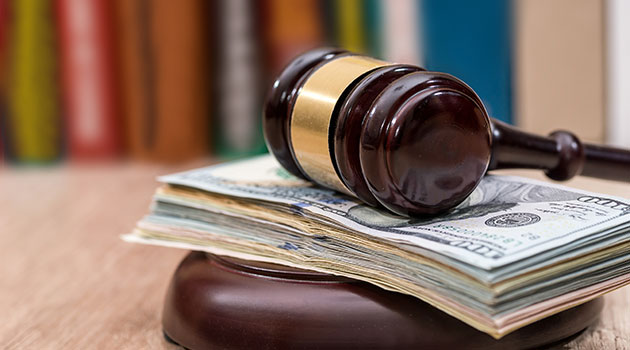The trade secret lawsuit embroiling Google’s self-driving subsidiary Waymo and rideshare company Uber will end in a settlement, lawyers for both sides announced early Friday, bringing an abrupt end to Silicon Valley’s largest legal battle.
The halt was not only surprising but seemed anticlimactic, after nearly a year of build-up, months of nasty public exchanges between the two sides, and just four days of trial at the U.S. District Court for the Northern District of California in San Francisco.
It also seemed a pittance, with the financial damages registering at just 0.34% of Uber’s $72 billion valuation—or $244.8 million. Aside from paying the sum out, Uber promised not to use hardware or software derived from confidential Waymo information in its self-driving car project.
Previously, the Google subsidiary had discussed asking for upwards of $2 billion from Uber, but Waymo may have been paid in other ways as the trial exposed a number of unsavory texts and emails sent by top Uber executives, including former CEO Travis Kalanick, who took the stand earlier this week. Many of the most eyebrow-raising exchanges took place between Kalanick and Anthony Levandowski, the former Google employee accused of peddling Waymo’s confidential information to Uber.
“We are committed to working with Uber to make sure that each company develops its own technology,” a Waymo spokesperson said in a statement. “This includes an agreement to ensure that any Waymo confidential information is not being incorporated in Uber Advanced Technologies Group hardware and software. We have always believed competition should be fueled by innovation in the labs and on the roads and we look forward to bringing fully self-driving cars to the world.”
For their part, Uber officials issued a statement penned by current CEO Dara Khosrowshahi, who expressed “regret” over the legal mess and referred to Alphabet—the parent company of both Google and Waymo—as a friend, partner, and important investor in Uber.
“While I cannot erase the past, I can commit, on behalf of every Uber employee, that we will learn from it, and it will inform our actions going forward,” Khosrowshahi said in the statement. “I’ve told Alphabet that the incredible people at Uber ATG are focused on ensuring that our development represents the very best of Uber’s innovation and experience in self-driving technology.”
The CEO also touched on Uber’s acquisition of Otto, the start-up company at the very heart of the lawsuit. Waymo’s case revolved around the idea that Levandowski left Google armed with more than 14,000 illegally downloaded, confidential files before opening Otto in 2016, which he quickly sold to Uber, allegedly to pass the secret information on.
The ultimate purchase of Otto “could and should have been handled differently,” Khosrowshahi wrote, although he later added that the idea made “good business sense” from a competitive perspective.
Waymo attorneys argued Kalanick and several other top brass at Uber knew about the files at the time of the acquisition and decided to strike the deal anyway, therefore breaching intellectual property laws.
While Waymo’s lawyers initially asked for hundreds of files in the case to be considered trade secrets, Federal Judge William Alsup required them to settle on just eight pieces of proprietary information. Ultimately, the search engine giant stuck with data related to the development of LiDAR, the cutting-edge laser technology that allows autonomous cars to “see,” which most industry insiders have agreed is crucial to producing the self-driving robocars.
Over the course of the trial, Alsup chided Waymo lawyers time and again for hinting that the company was the only one capable of building the lasers, and for using overly dramatic tactics like asking the public to leave the courtroom in order to indulge the jury with “secret” information, which Alsup wasn’t buying.
“In the sealed portion [of the lawsuit], only two-thirds of it deserves to be sealed,” he announced on the trial’s second morning, addressing the comment directly to the “newspaper reporters in the room.”
“What bothers me about Waymo’s case is that you’re leaving the impression to the jury that you invented LiDAR, that you invented self-driving cars…You did not.”
Alsup also went out of the way to remind the lawyers that the case was ultimately about eight agreed-upon trade secrets only.
It’s unclear how those pieces of information—or their influence on Uber’s self-driving technology—will be policed or removed from the rideshare giant’s headquarters, as the settlement suggests.
It also remains to be seen whether the out-of-court settlement will impact a separate federal investigation into the matter, which was taken up by the Department of Justice last fall after Alsup recommended the case for further inquiry.
